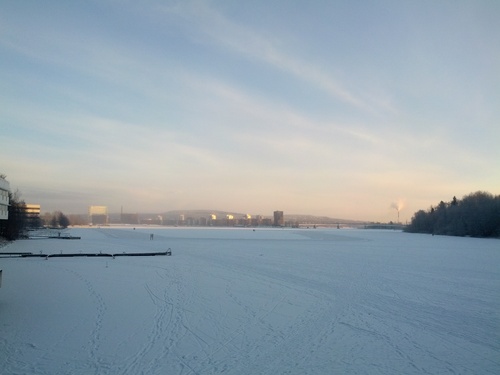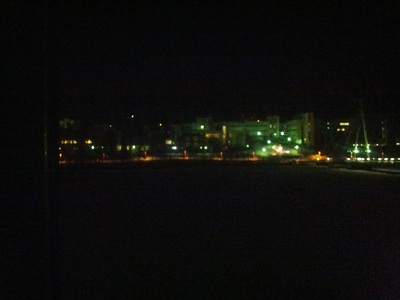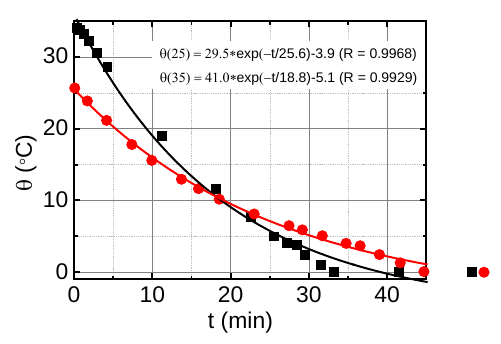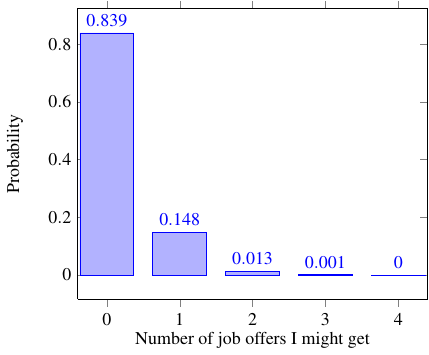Wrapup of a busy month
Posted by David Zaslavsky on
January has been one of those busy months when I haven’t been able to put anything substantial on the blog. I’ve been meaning to — and yes, I do have several posts in preparation for whenever I get a chance — but I’ve just had so much going on, the time kind of flew by.
Most of the month has been occupied with preparing for, going on, and recovering from my trip to Jyväskylä (Finland). Although it’s pretty cold there by the typical standards of the continental US — the unusual cold that we’ve been experiencing in the States is normal winter weather for Jyväskylä — I actually rather like it there. The scenery is pretty, the city is small but not so small that it doesn’t exist, plus the physics department has a strong record of the kind of research I do. And oh yeah, everyone speaks English. Seriously, even though the primary language of Finland is (of course) Finnish, I didn’t interact with a single person who didn’t speak very good English, so I had no trouble getting around.
Depending on how things go, I might wind up as a postdoc there for the …





